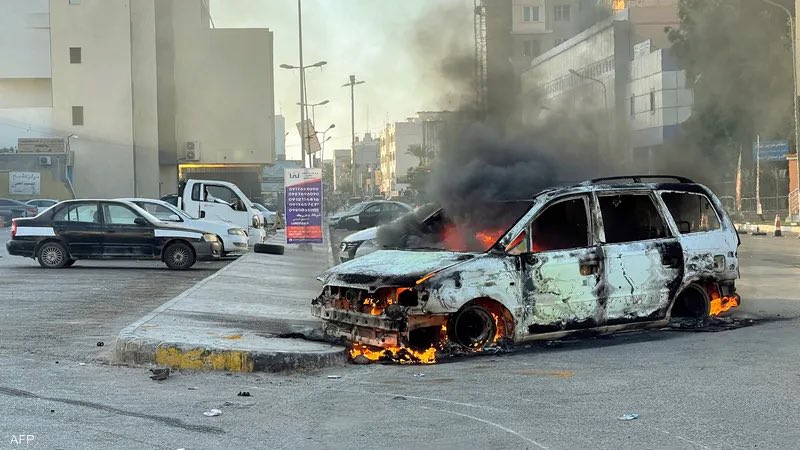The escalation comes amid ongoing tensions between Libya’s two rival administrations.
Qatar called on all parties in Tripoli to avoid escalation and bloodshed on Saturday amid deadly fighting between rival factions that has raised fears over yet another war.
In a statement, the Qatari foreign ministry said it is following the situation in Libya with “great concern”, calling on all sides to prioritise “the voice of wisdom” and settle differences through dialogue.
Qatar stressed “the need for the Libyan parties to work to ensure the protection of civilians and facilities, and to consider this a top priority.”
“The Ministry reiterates Qatar’s full support for the Libyan political path, the relevant Security Council resolutions, and all peaceful solutions that preserve Libya’s unity, stability and sovereignty, and achieve the aspirations of its brotherly people for development and prosperity,” said the Gulf state.
Libya witnessed its worst standoff in two years on Saturday following rising tensions between the UN-backed Government of National Unity (GNU) and the newly-appointed rival administration of Fathi Bashagha.
According to AFP, at least 32 people were killed as more than 159 injuries were reported. However, reports on Sunday said fighting stopped, with sudden silence filling the air in Tripoli.
Eyewitnesses told the news agency that Bashagha-aligned forces tried to seize Tripoli during the latest escalation from three different areas.
Bashagha’s administration has yet to respond to claims over its links to recent clashes.
Fears of a new war
This week’s clashes raised fears over yet another war in Libya that is reminiscent of the deadly 2019-2020 offensive by warlord General Khalifa Haftar.
At the time, the eastern commander attempted to drive out the GNU before a military intervention by Turkey as well as a UN-sponsored ceasefire brought his offensive to a halt.
The UN High Commissioner for Refugees estimates that the conflict in Libya has internally displaced more than 200,000 people.
Commenting on the latest clashes, Turkey reiterated its support for the people of Libya while calling for an immediate ceasefire.
Several rounds of violence have erupted across the country as the country’s political unrest continues.
Last month, another round of fighting broke out between armed groups that are linked to the Presidency Council in the cities of Tripoli and Misrata. According to Reuters, at least 13 people, including three civilians, were killed in the standoff.
On 17 May, Bashagha attempted to take control of Tripoli before being forced out of the capital city within hours following violent clashes.
Absence of elections
Libya has been witnessing rising tensions since the start of the year amid delays in elections.
The GNU, recognised by Qatar, came to power last year after a long period of instability that followed the overthrow of former dictator Muammar Gaddafi.
The Dbeibeh government was scheduled to remain in power until the December presidential elections in 2021. However, the date was changed days ahead of the elections to 24 January this year by the High National Election Committee (HNEC).
Bashagha, seen as Haftar’s ally, then came to power in February after he was appointed by the eastern-based House of Representatives. The parliament defended the move by saying that Dbeibah’s time in office had expired.
This has led to a political divide between two rival administrations, with Dbeibeh refusing to step down until after elections take place.
Groups affiliated with Haftar had also stopped funding Dbeibah’s government to apply pressure on the GNU.
The three-month blockade was only lifted after Dbeibah appointed Haftar-allied Farhat Bengdara as the state oil company chief. During the embargo, the Libyan government lost more than $3 billion in revenue.
